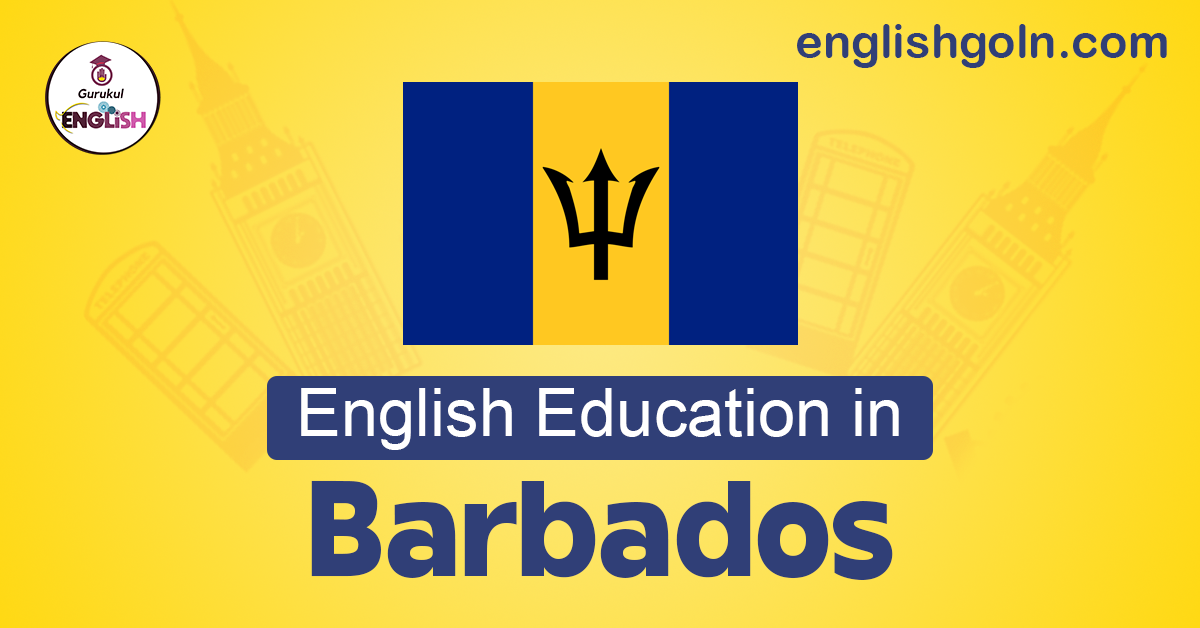English education in Barbados holds a unique place in the country’s history, culture, and national identity. As an island nation in the Caribbean, Barbados has a complex colonial past that significantly impacted its language and educational systems. Today, English remains the official language and is deeply ingrained in the country’s educational landscape. This article explores the historical development of English education in Barbados, its current state, challenges, and the efforts made to preserve the language while embracing the cultural diversity of the island.
English Education in Barbados

Historical Roots of English Education in Barbados:
The roots of English education in Barbados can be traced back to the island’s colonization by the British in the early 17th century. The British influence led to the establishment of an education system modeled after that of England. Formal schooling was initially available to the privileged few, primarily white plantation owners and their families.
Slave labor provided the foundation for the island’s economy, and enslaved Africans were largely denied access to education during this period. Their cultural practices and languages were suppressed, and the English language was imposed upon them, creating a linguistic and cultural divide within the society.
The Role of English Language in Education:
As Barbados moved through the centuries, the English language became an essential component of its educational system. English was established as the language of instruction in schools, and its mastery was seen as a pathway to social and economic advancement.
In the post-independence era, English education played a crucial role in nation-building and fostering a sense of national identity. Education became more accessible to the broader population, and efforts were made to address the disparities in access between different social and racial groups.
The Bajan Dialect and Language Diversity:
Despite the dominance of English, Barbados is also home to a distinct linguistic variety known as Bajan. Bajan, or Barbadian English Creole, is a creole language with strong influences from West African languages, English, and other Caribbean languages.
Bajan emerged as a means of communication among enslaved Africans and with the European colonizers. Over time, it evolved and developed its unique grammar, vocabulary, and pronunciation. Today, Bajan is widely spoken in informal settings, at home, and among friends, reflecting the cultural richness and diversity of the island.
Challenges in English Education:
While English education has made significant strides in Barbados, it faces several challenges:
- Language Divide: The divide between Standard English and Bajan continues to be a challenge. Many Barbadians are bilingual, able to switch between Standard English and Bajan based on the context. However, the use of Bajan in informal settings sometimes leads to negative perceptions of its speakers in formal and professional settings.
- Quality of Education: Despite improvements in access to education, there remain concerns about the quality of education, particularly in disadvantaged communities. Addressing educational inequalities and enhancing teaching standards are essential for ensuring the effectiveness of English education.
- Preserving Bajan Culture: While English education is critical for integration into the global community, there is a need to preserve and celebrate the cultural heritage of Bajan language and traditions. Embracing Bajan culture in education can foster a sense of belonging and pride among Barbadian students.
- Language Policy: Barbados faces decisions regarding language policy in education. Striking a balance between promoting Standard English for global communication and acknowledging and valuing Bajan as part of the island’s heritage is a delicate task.
Promoting Language Diversity and Cultural Awareness:
In recent years, there have been efforts to promote language diversity and cultural awareness in English education:
- Bajan Language Studies: Some schools have introduced Bajan language studies into their curriculum, helping students understand and appreciate their cultural heritage. These studies also include discussions on the history of Bajan and its role in shaping Barbadian identity.
- Cultural Exchange Programs: Cultural exchange programs are being organized to foster cross-cultural understanding. Students from different backgrounds have the opportunity to share their languages, customs, and traditions, promoting tolerance and mutual respect.
- Teacher Training: Teacher training programs are focusing on developing an inclusive and culturally responsive curriculum that acknowledges and incorporates Bajan culture and language into the learning process.
- Literary Works: Barbadian authors and poets are contributing to the preservation of Bajan culture through literary works written in the Bajan dialect. These works not only celebrate the language but also provide a platform for international audiences to learn about the island’s unique cultural expressions.
Conclusion:
English education in Barbados is an ever-evolving journey that reflects the nation’s history, culture, and aspirations. The English language remains essential for global communication and economic opportunities, but the island’s cultural diversity and heritage are also integral to its identity.
Efforts to promote language diversity, cultural awareness, and educational equity are essential for fostering a more inclusive and empowered society. By celebrating both Standard English and the Bajan dialect, Barbados can honor its past while looking towards a future that values its linguistic and cultural heritage. Striking the right balance will empower Barbadian students to embrace their identities with pride, contributing to a vibrant and culturally rich nation in the Caribbean.
